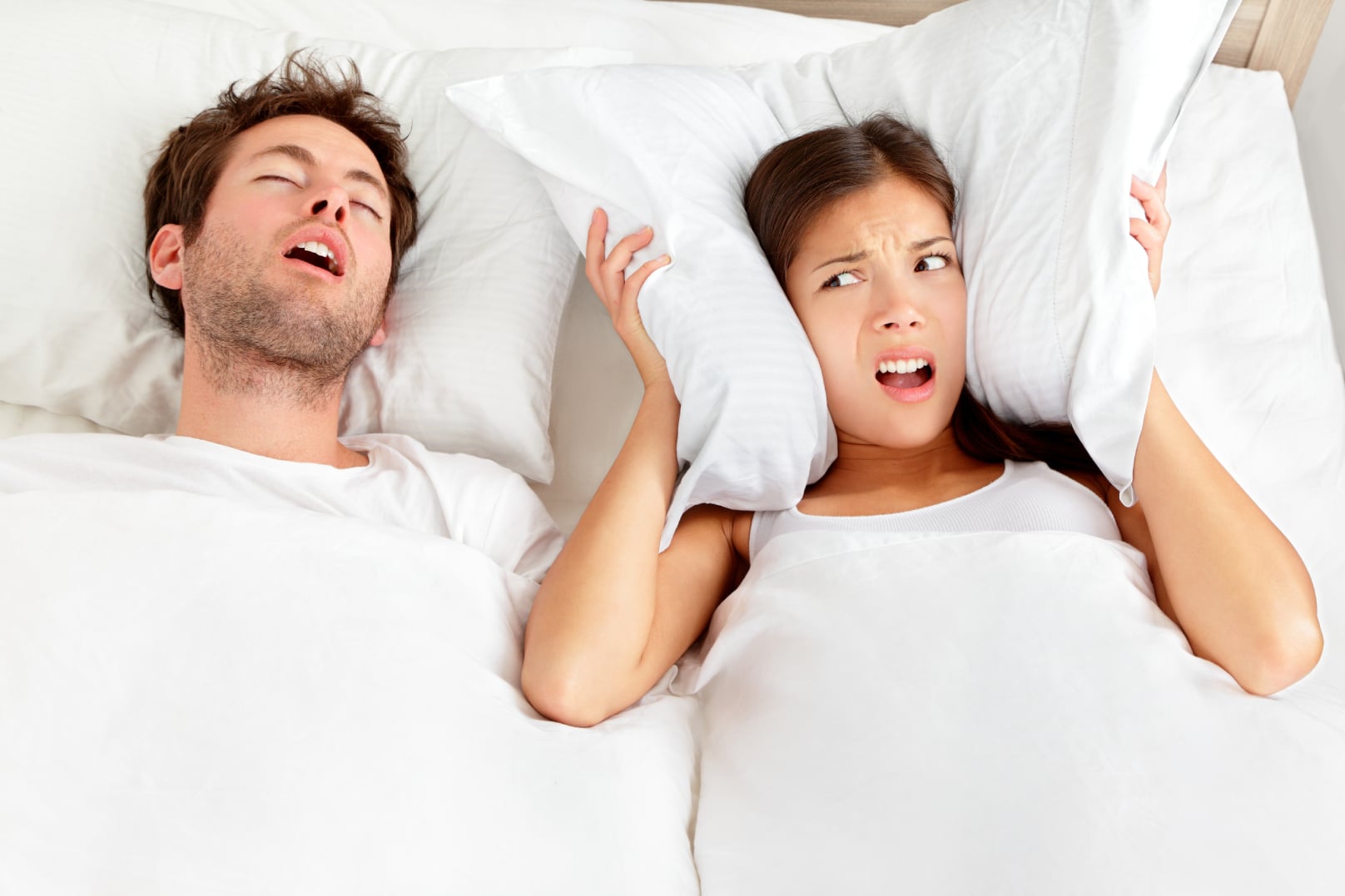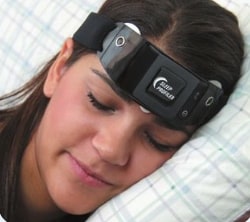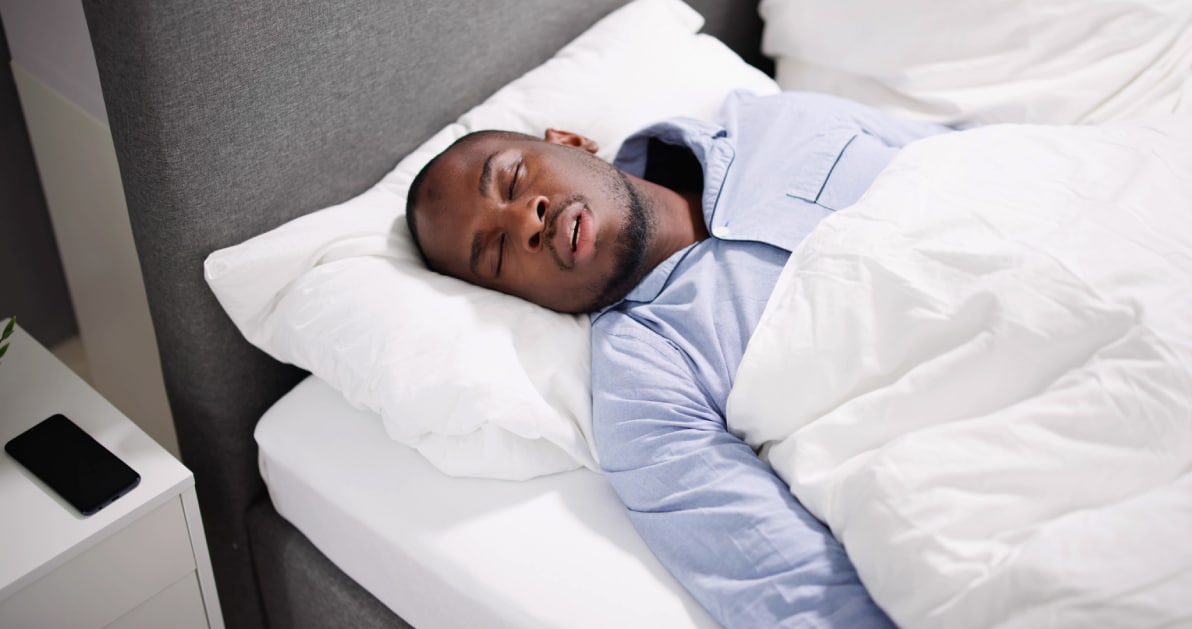
What is Obstructive Sleep Apnea?
Obstructive sleep apnea (OSA) is a serious sleep disorder characterized by repeated pauses in breathing. It occurs from obstruction of the upper airway which blocks normal airflow. As a result, the brain signals the muscles of the chest and diaphragm to open the airway, which can result in a loud gasping sound and lead to disrupted sleep.
What Are the Symptoms of Sleep Apnea?
One of the most telltale symptoms of obstructive sleep apnea is chronic snoring. Other signs to look for may include:
- Excessive daytime sleepiness (ESS)
- Pauses in breathing while asleep
- Choking or gasping during sleep
- Trouble concentrating
- Irregular heartbeat
- Sore throat
- High blood pressure
Diagnosis
Airway obstruction can be caused by varying factors such as the tongue or soft palate tissue. In order to identify whether you have obstructive sleep apnea, a diagnostic test called a home sleep study may be recommended.
What Are the Risks of Leaving Sleep Apnea Untreated?
Obstructive sleep apnea is a disorder with very significant and detrimental health concerns, including cardiovascular disease-related complications which can lead to early death if left untreated.

What Is The ARES™?
The ARES™ is an at-home assessment that evaluates sleep architecture to screen for possible breathing-related sleep disorders. Full disclosure signals are acquired from the device worn on your forehead and provide total time and percentage sleep, REM (rapid eye movement) sleep, SWS (slow-wave sleep), sleep efficiency, the total and average number of cortical, sympathetic and behavioral arousals, and the frequency and intensity of snoring.
Candidates For The ARES™
If you have trouble sleeping through the night and suspect that you may be suffering from a sleep disorder, Dr. Marc Bowen may recommend the ARES™ as an evaluation. Contact us to find out if you’re a good fit.
How Does The ARES™ Work?

With the at-home ARES™ you’ll be provided with a small device that you will wear overnight and may be asked to keep a sleep diary for the night. You will take the lightweight and easy-to-use device home and wear it around your head while you sleep. The ARES™ will collect the data.
After your test, you will return the device to Dr. Bowen so he can interpret your results. You will then make a follow-up appointment to discuss your results with Dr. Bowen.
Advantages Of The ARES™
Benefits of the ARES™ include confirming the following:
- Total time and percent time by sleep stage
- Sleep, REM, and SWS latency
- Sleep efficiency
- Awakening index and Wake After Sleep Onset
- Differences in objective and subjective sleep quality
- Frequency and intensity of positional snoring
- Prescreening for home sleep study for sleep apnea
Dr. Marc Bowen is an NYC pulmonologist and sleep apnea specialist with over three decades of experience specializing in pulmonary medicine. We are dedicated to providing a personalized and convenient patient experience, offering the latest diagnostic tests and in-office procedures to help you return to your active lifestyle.
Conditions Associated with Sleep Apnea
A strong link exists between obstructive sleep apnea and several conditions, including:
OSA can lead to repeated drops in oxygen levels when you’re asleep, causing stress on the cardiovascular system. This stress can cause high blood pressure, which in turn increases heart disease risk.
Sleep disturbances and reduced oxygen levels can also contribute to insulin resistance. This condition can increase your chances of developing type 2 diabetes.
When to See a Pulmonologist
You should see a pulmonologist for sleep apnea if you experience issues such as:
- Loud snoring, choking, or gasping while asleep
- Excessive daytime fatigue
- Morning headaches
- Difficulty concentrating
- Mood changes
- Insomnia

Have you been diagnosed with sleep apnea and noticed that your symptoms persist or worsen despite treatment? Do you have underlying problems like high blood pressure, heart disease, or diabetes?
A pulmonologist can provide specialized care and advanced management options. Early consultation can help you control your condition and prevent complications.
FAQs
Yes, OSA can contribute to weight gain. It often disrupts normal sleep patterns. These disruptions lead to fatigue and decreased physical activity.
Additionally, OSA can affect hormones that regulate hunger. This causes increased appetite and cravings for high-calorie foods. The combination of factors makes weight management more challenging for individuals with sleep apnea.
OSA can significantly impact mental health. Chronic sleep deprivation from OSA can worsen mood disorders such as depression and anxiety. It also affects cognitive functions like memory, attention, and decision-making. Addressing sleep apnea can improve mental well-being and quality of life.
Several adjustments can help you control your OSA, including:
- Losing Weight: Reducing excess weight can decrease the severity of your condition.
- Exercising Regularly: Enhances respiratory strength and general well-being.
- Avoiding Alcohol and Sedatives: These relax the muscles in the throat, worsening symptoms.
- Changing Sleeping Position: Side sleeping can prevent the tongue and soft tissues from blocking your airway.
- Practicing Good Sleep Hygiene: Maintaining a regular schedule and creating a restful environment can improve sleep quality.
The latest solutions for OSA include:
- Continuous Positive Airway Pressure (CPAP): This is the most common and, in many cases, effective option.
- Bi-level Positive Airway Pressure (BiPAP): This is an alternative for those who struggle with CPAP.
- Oral Appliances: Some patients use custom-made devices to keep the airway open.
- Surgery: Procedures like UPPP can be helpful in severe cases.
- Positional Therapy: Special devices can be used to encourage side-sleeping.
- Lifestyle Interventions: These include weight management and exercise programs.
OSA is generally considered a chronic disorder. However, you can manage it effectively. In some cases, you can also significantly improve your symptoms by making lifestyle changes and using the proper treatment methods.
Schedule Your Consultation
If you chronically snore or are experiencing excessive daytime sleepiness or any other telltale symptoms of sleep apnea, please contact our office to schedule an evaluation with Dr. Bowen as soon as possible for sleep apnea testing and treatment. Dr. Bowen is an experienced pulmonologist who specializes in sleep apnea in NYC.
